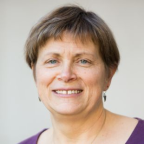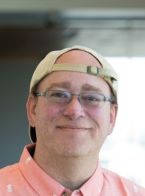How to Apply
Faculty Mentors
Translational
- David M. Jablons, M.D.
- Laura J. Esserman, M.D., M.B.A.
- Michael J. Campbell, Ph.D.
- Kimberly Kirkwood, M.D.
- Jeroen Roose, PhD
- Christina Yau, PhD.
- Liang You, Ph.D.
- Julie Saba, MD, PhD
Regulatory Sciences
- Laura Van 'T Veer, PhD
- Kathy Giacomini, PhD
- Deanna Kroetz, PhD
- Barbara Koenig, PhD, RN
- Nola Hylton, PhD
- Brian Shoichet, PhD
- Ida Sim, MD, PhD
Health Services & Implementation Science
- Emily Finlayson, M.D., M.S.
- Elizabeth C. Wick, M.D.
- Julie Ann Sosa, M.D., M.A., FACS
- Louise Walter, MD
- Andrew Auerbach, MD
- Kim Rhoads, M.D., M.P.H
- Alex Smith, MD, MPH
- Maren Scheuner-Purcell, MD, MPH
- Leslie Wilson, PhD
Fellows
Current Fellows
- Nisha Parmeshwar, M.D.
- Alexis K. Colley, M.D., M.S.
- Nathan R. Brand, M.D.
- Kelli Ann Ifuku, M.D.
Past Fellows 2021-2022
- Laura L. Barnes, M.D.
- Nathan R. Brand, M.D.
- Patricia Conroy, M.D.
Past Fellows 2020-2021
- Alexa Glencer, M.D.
- Joseph Lin, M.D.
Curriculum
Trainee Portal
T32 Trainee Experiences
Faculty Mentors
Regulatory Sciences
Professor, Bioengineering
Co-Director UCSF-Stanford Center of Excellence in Regulatory Sciences and Innovation
Regulatory Sciences, Co-lead: Dr. Giacomini is a world-renowned pharmacologist studying transporter biology, pharmacogenomics and regulatory sciences. Her work focuses on issues related to bioequivalence of generic drugs such as formulation differences, using a range of techniques, including bench research and large clinical trials using the electronic medical record to identify factors responsible for variation in drug response and toxicity. As Department Chair, she was responsible for three PhD graduate training programs including Pharmaceutical Sciences and Pharmacogenomics; Biological and Medical Informatics; and Bioengineering that trained over 100 PhD level students. Personally, Kathy has mentored over 60 PhD students and postdoctoral fellows, many of whom now hold faculty positions in academia or have careers with the FDA or industry.
Training opportunities range from laboratory-based research in cell-based therapies, small molecules, diagnostic tests, and large devices to clinical research focused on clinical trial design, patient reported outcomes and patient preferences, to regulatory sciences research relating to post-marketing surveillance and real-world data and digital health. The CERSI Innovations in Regulatory Science Summit is part of our Change Management and Leadership course.
Professor, Laboratory Medicine
Associate Director Applied Genomics
Regulatory Sciences, Co-lead: Dr. van ‘t Veer is a world-renowned molecular biologist and inventor of the MammaPrint 70-gene test that is FDA approved to assess risk of recurrence in breast cancer. Her research focuses on personalized medicine, aiming to advance patient management based on knowledge of the genetic makeup of the tumor as well as the genetic makeup of the patient. Dr. van ‘t Veer has successfully trained over 25 pre-doctorate students, 11 predoctorates and 21 postdoctoral fellows including surgical residents and fellows.
Opportunities for translational research projects in Dr. van ‘t Veer’s lab include the molecular prognosis and response prediction of breast cancer patients by state-of-the art bioinformatics and statistics tools, based on a wealth of available data from the I-SPY2 and the MINDACT trial as well as other relevant clinical studies. Molecular data include RNA expression, DNA mutation and protein activity data. Trainees will have the opportunity to work on getting biomarkers for tumor characterization qualified by the FDA for use within the I-SPY2 randomization engine.
Professor, School of Medicine, Radiology
Dr. Hylton, is an imaging scientist and breast cancer researcher with broad experience in the area of biomedical research. The goal of her interdisciplinary program is to develop imaging based biomarkers that can be used in combination with clinical and molecular information to individualize treatment strategies for patients with early breast cancer. She started her career developing the sequences and software that created breast MRI and has developed functional tumor volume (FTV), which is qualified as a biomarker for decision making and is the source of the longitudinal model for the adaptive design of I-SPY2. She is the imaging leader and co-PI of the I-SPY2 NCI Program project with Dr. Esserman with whom she has collaborated for 27 years and has been continuously funded by NCI for over 25 years.
Opportunities include optimization of imaging biomarkers using existing and newly developed imaging assessment to predict response and submit an Investigational Device Exemption to allow their use for clinical decision making. As well, trainees can harness national imaging networks (Cancer Imaging Atlas and the Quantitative Imaging Network) to develop imaging repositories to advance both translational and regulatory science and to better incorporate imaging science into the conduct of clinical trials and to be the catalyst for innovation and change,
Dr. Koenig is an anthropologist working in the inter-disciplinary field of bioethics. She founded and led Biomedical Ethics Research Programs at Stanford and Mayo Clinic and pioneered the use of empirical methods in the study of ethical questions in science, medicine, and health. Dr. Koenig has considerable experience mentoring clinicians and scientists across educational levels, from pre-docs through residents, fellows, and junior faculty. She leads a Bioethics grant for the WISDOM study with Drs. Esserman and van ’t Veer.
Training opportunities with Dr. Koenig focus on ethical issues around translational genetic testing (e.g. whole genome/exome testing or polygenic risk scores), use of patient data, return of uncertain results, and work at the clinical/research boundary (including on WISDOM).

Professor, Bioengineering and Therapeutic Sciences
Dr. Kroetz is an internationally recognized pharmacologist with expertise in drug metabolism and transport, and pharmacogenomics. Her research program is focused on understanding host variability in drug response and toxicity, include the pharmacogenomics of cancer treatment related toxicities, efflux transporter structure and function, and regulatory science. Dr. Kroetz just recently completed 10 years as the Director of the Pharmaceutical Sciences and Pharmacogenomics (PSPG) Graduate Program and PI of the associated T32. She has mentored 15 graduate students, 10 pharmaceutical sciences pathway students, and more than 20 postdocs and visiting faculty.
Trainee opportunities in Dr. Kroetz’s lab range from participation in large clinical pharmacogenomics studies to iPSC-induced sensory neuron studies of gene function and drug toxicity, to collaborative studies to solve the structure of ABC transporters.

Professor, Pharmaceutical ChemistryLink to Pharmacy Profile/Bio
Dr. Brian develops new methods for drug discovery using intensive modelling and close collaboration between theory and experiment. By reducing biology to its molecular components and seeking to change how these fit together using novel synthetic molecules we design and by investigating how the biological molecules operate together, both in health and disease. In the past 10 years, he has mentored 10 pre doctorates and 20 post-doctoral trainees, the majority of whom have gone onto research-related careers. He is a preceptor on NIH Training Grants in Biophysics (PI, Matt Jacobson), Chemical Biology (PI, Charly Craik) and Pharmaceutical Sciences (PI Frank Szoka).
A broad range of project are available for trainees, centered on academic drug discovery, chemical biology, and biophysics.
Dr. Sim is an international leader in mobile health data standards and technology and in clinical trial data sharing. A co-Founder of Open mHealth, a non-profit organization building open standards for mHealth data integration, Dr. Sim is a leading expert in the use of digital technologies in clinical research and in care. Dr. Sim has mentored 11 pre-doctoral and 12 post-doctoral students, advised 2 informatics PhD students, is a K advisor for three translational researchers and previously directed informatics training at UCSF.
Trainee opportunities with Dr. Sim focus on regulatory issues of digital biomarkers, integration of digital health tools into surgical oncology care and research, and digital biomarker validation through clinical trial data sharing and real-world evidence.